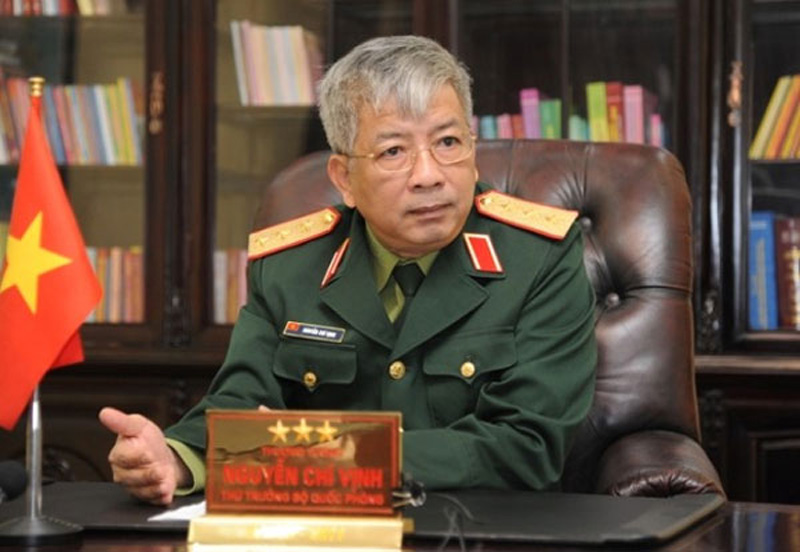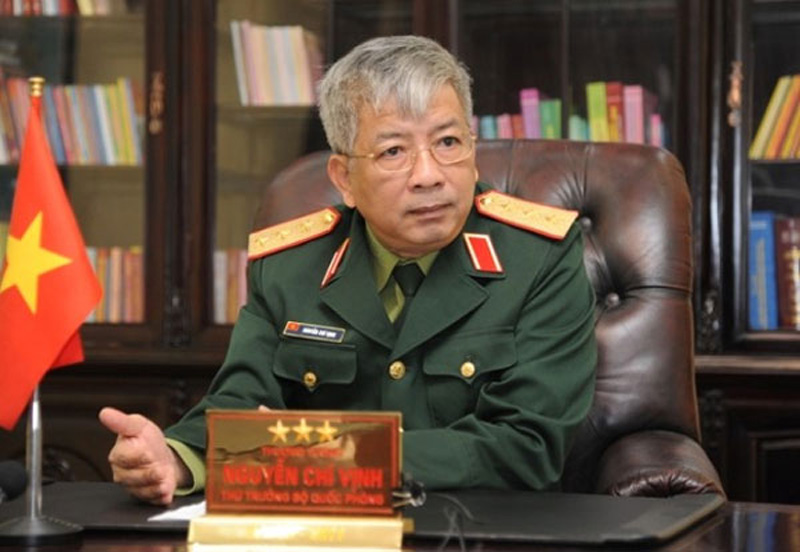


In peacetime, diplomacy, including defence foreign affairs, is an important activity to prevent the risk of war and foster national defence. Can you talk about Vietnam’s defence foreign affairs policy?
We fought wars and won to regain independence, freedom, and reunification. We fought for peace, so we value the elements and factors to achieve peace.
Firstly, we always try to maintain peace and friendship with international friends. Secondly, we take advantage of peace time and friendship to win the support of other countries for our national building course. Thirdly, even with those who still have different views with us, we are always willing to talk in peace with them as long as they respect Vietnam’s independence and sovereignty.
At the moment, international integration and defence foreign affairs are highly appreciated by the Party. At the 8th tenure of the Party Central Committee, a resolution on the National Defence Strategy in the new situation was issues. The resolution stated that protecting national independence and sovereignty must come along with protecting peace.

Nguyen Chi Vinh.
Vietnam wants to be friends with all countries around the world and we are a responsible member of the international community. In that resolution, we no longer distinguish who is the friend, who is the enemy, but we use the term "partner”.
With such new awareness, we promote international relations and started to expand relationships through two different channels, bilateral and multilateral, to strengthen relations with countries that still have different views than ours. For instance, with those who previously were at war with us, or countries with territorial disputes with us, we consider these as our important collaborative partners to gradually handle the problems that exist between the two sides, to co-exist in peace, to develop together.
How has this policy been implemented by the Ministry of National Defence?
Guidelines from the Ministry of Defence have always determined the task of protecting the territory, protecting the independence and protecting the sovereignty of the country. The second task is to protect the interests of the nation, which focus on protecting the socialist regime, protecting the Party and protecting the people. The third is to protect the country’s sustainable peacetime.
This is a new perception of the mission of protecting the country. The army needs to be strong in politics, organisation, equipment, training, qualifications, and all other aspects. We must also ensure the military becomes more equipped and modernises for new tasks.
We do not aim for beneficial relationship, we do not question the benefits and harms or what we gain in relationships with other countries. The biggest thing we can get is friends around the world, who would support us in the cause of national construction and defence. They are ready to stand with us when our country is at risk. That is the target that defense foreign affairs aim for.
Fighting to protect Vietnam’s sovereignty over the East Sea is a complicated and sensitive issue. What role does foreign affairs policy and implementation play regarding this matter?
Handling the issue of the East Sea sovereignty is a huge matter of our Party and State. All agencies, departments and localities must work together, but the main advisory body is the Government, in particular, the diplomatic agency. The national defence sector does not stand outside the story of the East Sea, and even the national defence sector must identify itself as an extremely important factor to uphold the sovereignty of the East Sea.
Vietnam’s goal is not only sovereignty, but also peace, stability and development. Keeping the sovereignty over the East Sea but suffering from regional conflicts is not what Vietnam wants. The first task is to ensure our actual sovereignty.
We must fight back and defend our archipelago sovereignty in the Paracel and Spratly Islands, our technical structures on our islands are sovereign. We must protect the fishermen, protect the fishing ground, help the fishermen have a stable job to work and make ends meet. We participate in supporting the people as well as making good living plans for them.
We strictly enforce the law, but always help, and deliver humane treatment towards fishermen from other countries when entering Vietnam’s waters.
A new development in Vietnam’s defence foreign affairs is to join the UN peacekeeping force. What are the bases for Vietnam to make this decision?
When we declare that we are a reliable partner, a responsible member of the international community as we participate in international organisations, we asked the world to respect us, respect our interests, respect our independence and sovereignty.
And when we join international organisations like the United Nations, ASEAN ... then we get their support. In return, Vietnam must contribute to the stability and peace of the world. In that spirit, Vietnam’s strategic policy is to protect the peace and stability in the region and the world together with protecting the country. That is the task of the defence strategy right now. Vietnam’s participation in the UN peacekeeping force must be responsible and effective, and it should not be just an opportunity to promote the country’s image.
Of course, when joining the UN peacekeeping force in foreign countries, each officer and soldier will be a peace ambassador, a cultural ambassador and a national defence ambassador.
Since 2005, the Ministry of Foreign Affairs (MOFA) and the Ministry of National Defence (MND) have collaborated closely with related agencies and international organisations to study and prepare for its contribution to UN peacekeeping missions. In particular, functional bodies of MOFA and some units of the MND have fostered their cooperation with the UN and several partners on deciding roadmap, conducting training for cadres and soldiers; carrying out field trips to UN missions.
In 2014, Vietnam officially deployed its forces to UN peacekeeping missions. In the past, we have dispatched many of military officers on UN peacekeeping missions in South Sudan, Central African Republic. These officers have successfully fulfilled their tasks and were highly appreciated by UN representatives and local governments.
On October 1 this year, Vietnam deployed its first level-two field hospital contingent to the UN Mission in South Sudan.
Apart from sending military medical forces, do we still participate in any other fields?
By 2020 at the latest, it will include military engineers. The number of soldiers could reach 300. Currently, the United Nations has asked Vietnam to appoint more delegations to join the peacekeeping force, but I clearly point out that Vietnam could only send other forces such as: security forces and communication forces.
Vietnam’s policy is to participate in peacekeeping activities only when there is a UN Security Council Resolution, in areas where there has been a peace agreement between the parties, activities for the purpose of peace, humanity, rebuilding. We do not participate in coercive tasks and combat operations.
Source: VNA